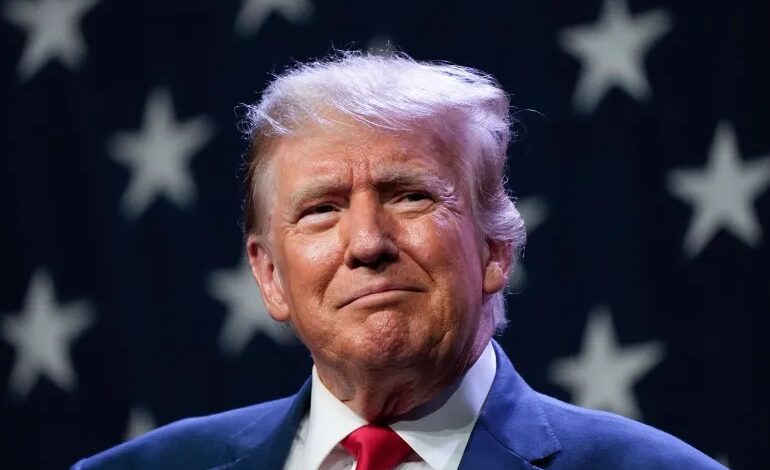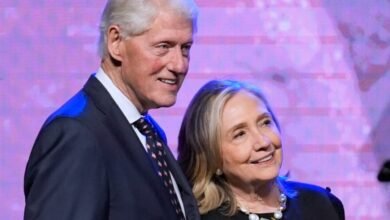
By Agnibeena Ghosh/16 April 2024
The United States reached a historic milestone on Monday as a former president stood trial for the first time, marking a moment of fateful significance amid the prospect of his return to the Oval Office next year.
As the presumptive GOP nominee begins the process of jury selection, the nation finds itself at the intersection of legal and political realms, embarking on a trial that promises to deepen the bitter ideological divisions among Americans. The case, revolving around hush money payments to an adult film actress before the 2016 election, adds another extraordinary chapter to the saga of Donald Trump, whose tumultuous presidency continues to reverberate through the political landscape.
At the heart of the trial lies the accusation that Trump falsified business records to conceal damaging information from voters—an early example of alleged election interference. While the case may not carry the same weight as other legal challenges Trump faces, it nonetheless poses significant implications for his political future. A conviction could tarnish his character and ethics, potentially influencing voters as they make their decisions in the upcoming election cycle.
Trump’s legal woes extend beyond this trial, with a total of 91 felony counts pending across state and federal courts. These charges, ranging from obstruction of justice to false statements, cast a shadow over his bid for a political comeback. Despite mounting legal challenges, Trump remains a leading contender in the race for the presidency, setting the stage for a high-stakes showdown between legal accountability and political ambition.
As the trial unfolds, the nation will grapple with questions of accountability and integrity, navigating the complex intersection of law and governance. Trump’s actions, both during his presidency and in the aftermath, have laid bare the tension between the responsibilities of leadership and the constraints of legal scrutiny.
The prosecution’s case, led by special counsel Jack Smith of the U.S. Justice Department, underscores the gravity of the charges against Trump. Accusations of willful retention of national-security information and obstruction of justice carry significant legal implications, raising doubts about the former president’s adherence to constitutional norms and ethical standards.
While the outcome of the trial remains uncertain, its implications for American democracy are profound. The trial serves as a litmus test for the rule of law and the accountability of those in positions of power—a test that will resonate far beyond the confines of the courtroom.
As the nation watches, the trial of a former president unfolds against the backdrop of a deeply divided political landscape, underscoring the enduring impact of Trump’s presidency and the challenges that lie ahead for the United States.






